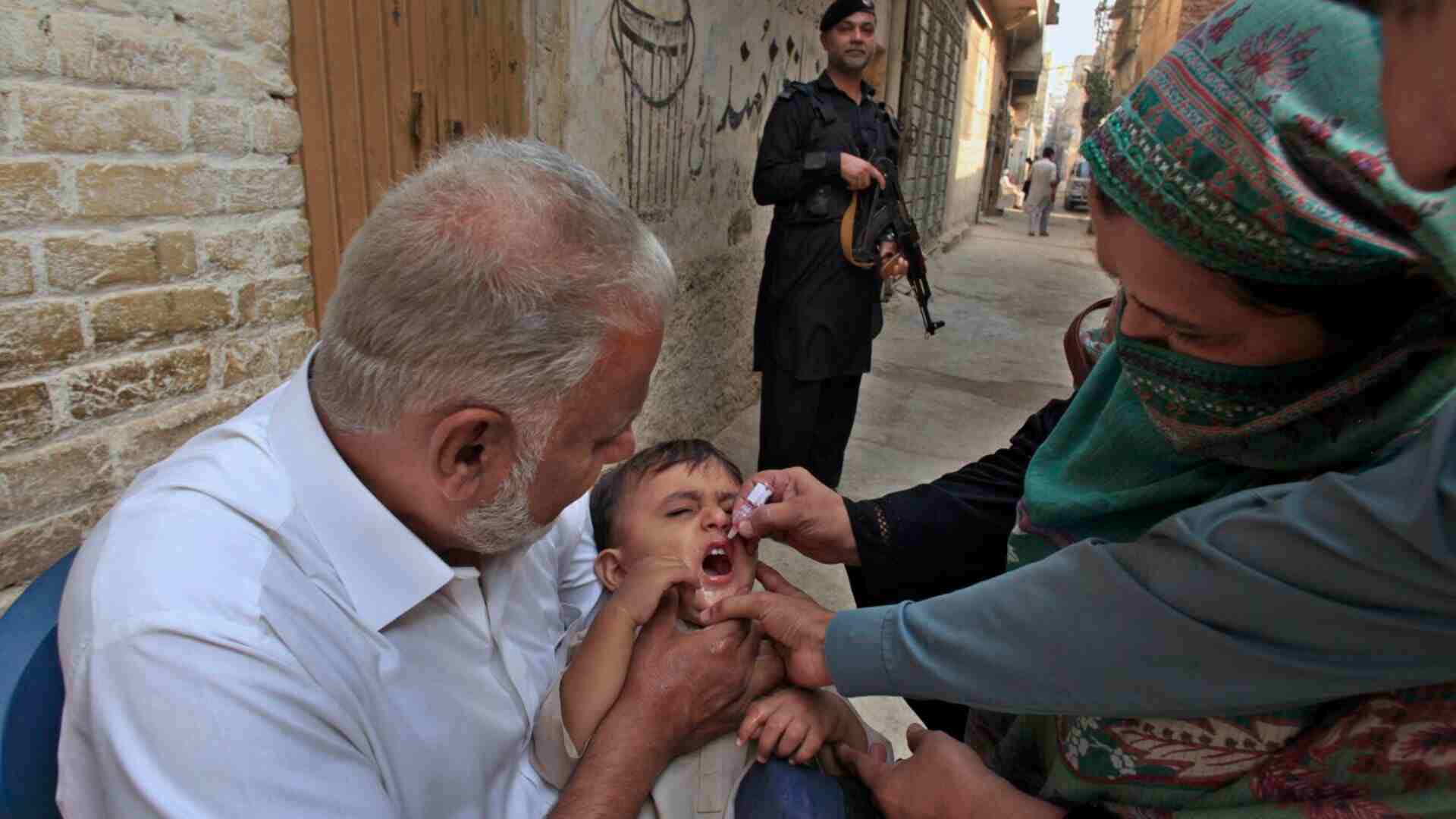Polio cases are rapidly increasing in Pakistan, raising significant health concerns as cases have been confirmed in eight districts, according to ARY News.
The National Institute of Health (NIH) reported that wild poliovirus type 1 (WPV1) was detected in sewage samples from Dera Ismail Khan, Charsadda, Rawalpindi, Qambar, Jamshoro, Killa Saifullah, Barkhan, and Mastung.
As of now, 63 polio cases have been reported in Pakistan, with Balochistan registering the highest number at 26. Khyber Pakhtunkhwa has reported 18 cases, followed by Sindh with 17 cases. Punjab and Islamabad have each reported one case. In addition, Charsadda has also reported a positive sewage sample for the virus. The growing prevalence of polio is raising concerns about a potential outbreak, posing a major risk to children nationwide.
Must Read: India, Moldova Ink Declaration On Migration And Mobility Partnership
In response, Section 144 has been imposed in Bannu, Khyber Pakhtunkhwa, for seven days in preparation for the upcoming anti-polio campaign, set to begin on December 16. Deputy Commissioner Abdul Hameed announced that the restrictions would be enforced immediately, including a ban on carrying firearms, prohibiting two people from riding on a motorcycle together, and restricting the use of tinted windows in vehicles. He also emphasized that anyone violating these restrictions would face strict legal action.
Khyber Pakhtunkhwa’s anti-polio campaign, starting on December 16, will address ongoing challenges such as vaccination refusals, missed targets, fake finger markings, and lack of cooperation from local health authorities and district administrations.
Earlier, on December 13, Pakistan reported four new polio cases, raising the 2024 total to 63, according to the National Emergency Operations Centre (EOC). The new cases were identified in Dera Ismail Khan, Tank, Jacobabad, and Sukkur, with the Sukkur case being the first in the region, as reported by The News International.
Also Read: Cyclone Chido Strikes France’s Mayotte, Leaving 11 Dead























